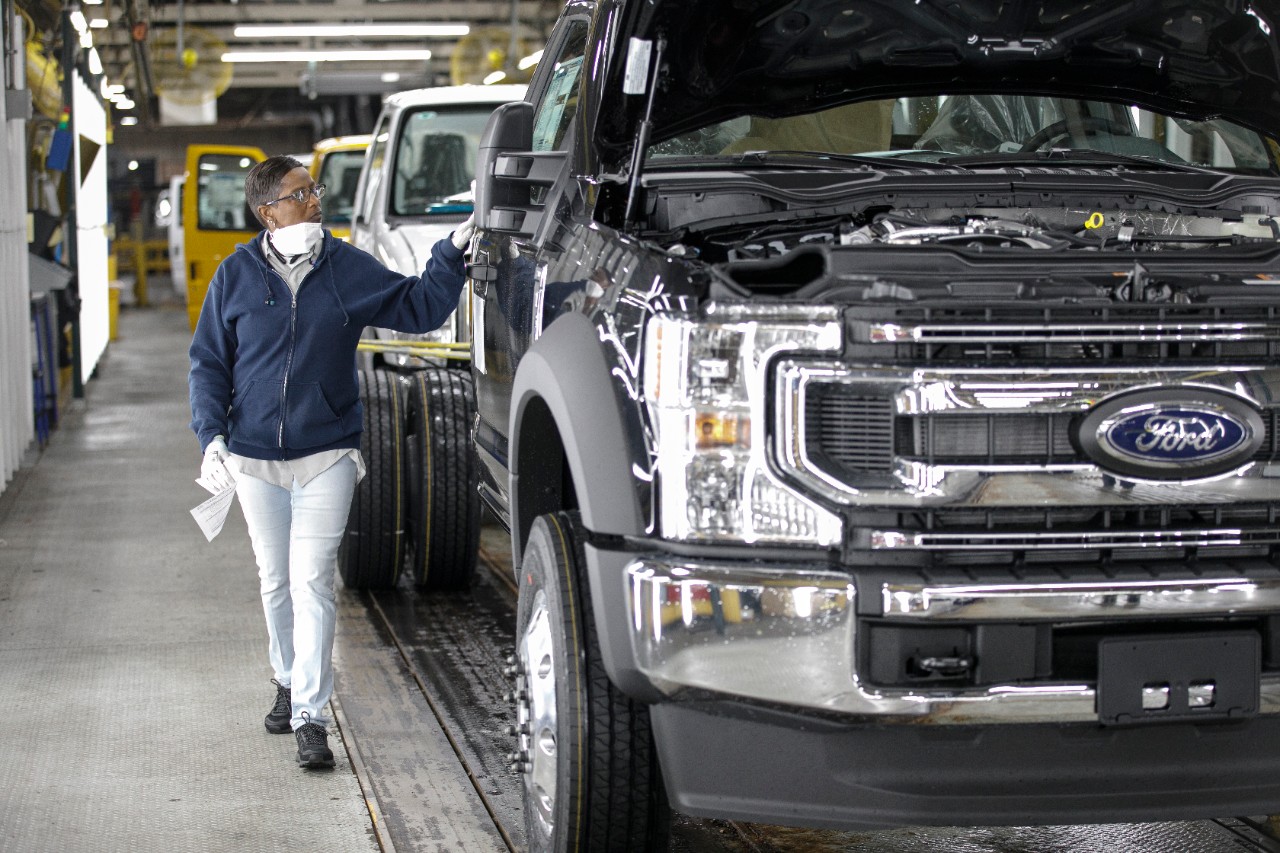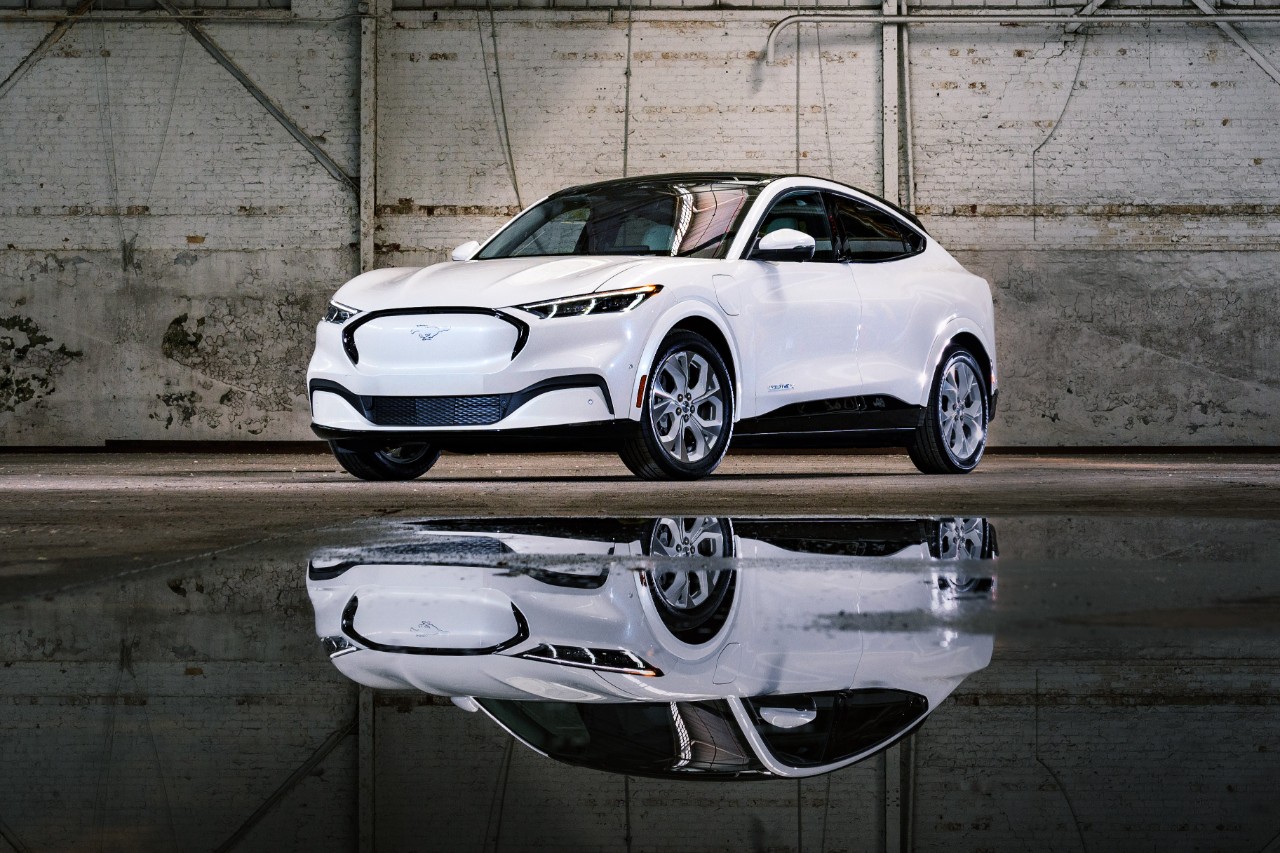Ford Motor Company (F +3.69%) said that its sales in China fell 21.7% in the second quarter from a year ago, to 154,042 vehicles, as Ford's dated product lineup and trade-war politics continued to keep Chinese consumers away from showrooms.
Year to date through June, Ford's sales in China are down 27.4%.
The raw numbers
Ford no longer releases detailed sales breakdowns for China. But the company was willing to supply a few key figures:
- Sales of Ford-brand vehicles, including imports, totaled 92,885 in the second quarter. That's down 28% from a year ago but up 22% from its first-quarter result.
- Lincoln sales rose 7% from a year ago, to 12,404 vehicles. That's up 28% from the first quarter.
- Sales of the JMC-brand trucks produced by Ford's joint venture with Jiangling Motors fell 13.1% from a year ago, to 48,753 vehicles.

Ford's all-new Focus is slowly gaining sales momentum in China. Image source: Ford Motor Company.
Key points from Ford's second-quarter China report
- Sales of the all-new Ford Focus are still far short of the eye-popping totals its predecessor regularly posted several years ago, when it was one of China's best-selling vehicles. But sales of the new Focus are growing as Ford continues to ramp up production: Ford sold 7,176 Focuses in China in June, an 88% improvement from May, and 23,399 in the first half of 2019.
- Ford's affordable developed-for-China SUV, the Territory, sold 13,403 units in the second quarter. That's still far short of the totals posted by the market-segment leader, General Motors' (GM +3.88%) Baojun 510, but it's progress.
- Ford sold about 1,000 Mustangs in China in the second quarter, up 9.5% from a year ago. That's more impressive than it may sound: In China, the Mustang is an expensive import.
- As noted above, Lincoln sales rose 7% in the second quarter. The growth was driven by the midsize Nautilus crossover (sales up 29%), the Chinese version of which has a more powerful engine for 2019, and by the big Navigator SUV (sales up 68%).
- Ford has dramatically reduced its dealer inventories from sky-high levels a year ago. As of the end of June, Ford had just 28 days' supply of vehicles at its China dealers, an impressively low number. (Ford generally has 60 to 80 days' supply of vehicles at its dealers in the United States.)

The Ford Territory is a low-cost crossover SUV developed specifically for China. A battery-electric version will launch later this year. Image source: Ford Motor Company.
Where does Ford go from here in China?
Back in April, Ford announced what it calls a "redesign" of its China business under the name Ford China 2.0. Like Ford's other regional business redesigns, the China 2.0 plan includes a product-lineup overhaul aimed at improving both competitiveness and profitability. The key points of the plan, as announced on April 3:
- More than 30 new Ford and Lincoln vehicles "tailored to Chinese consumers" in the next three years. More than 10 will be "electrified," meaning that they will have battery-electric hybrid or pure battery-electric drivetrains. (At least one will be all electric: Ford will launch a battery-electric version of the Territory SUV later this year.)
- Ford has launched a new China-market version of its well-regarded SYNC infotainment system, co-developed with search-engine giant Baidu (BIDU +8.17%).
- Ford is investing in a local research-and-development center and other local facilities as part of a larger effort to deepen its partnerships with Chinese technology companies.
Long story short, Ford thinks it did a poor job of adapting its products and services to the Chinese market, and it has put in place a leadership team and a plan to do (much) better in the future.
It will take time to deliver the results that Ford shareholders hope to see. But it seems like the right assessment and the right approach to building a sustainable business in the world's largest new-vehicle market.
That said, in the near term, Ford's profits from China are likely to remain thin.








